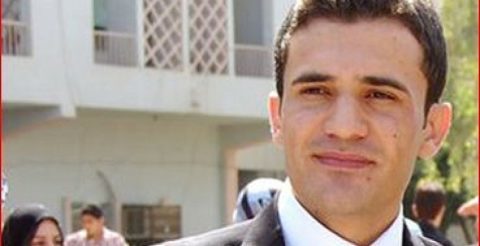By Arian Mufid:
We are republishing this article, first published in 2012, to mark the recent 10th anniversary of the murder of Sardasht Osman. It remains relevant today. 10 years on, there is still no justice for Sardasht Osman’s family. His killers remain protected by the KRG and unpunished.
At the beginning of May 2010 Sardasht Osman knew that his death warrant had been issued but, characteristically, this did not stop him from going to university and meeting with his friends. He knew very well that his days were numbered but he also understood that the price of truth is high. He did not fear death because he knew that he was a freedom fighter for his nation and his generation. On 4th May 2010 he was kidnapped from his university and, on the 6th, his brutally murdered body was found dumped on a roadside.
Sardasht’s death has shocked many across the world but … it did not silence him. Since his murder, there has been a steady stream of essays by eager journalists continuing his work in exposing the corruption and savagery of tribal rule.
Journalism is dangerous work in many parts of the world. This year to date 33 journalists have been murdered worldwide. A third of them were in Syria though most were not working in war zones but rather they were killed for writing about corruption – in countries like Pakistan, where journalists are murdered in order to frighten their colleagues into silence. Sardasht also wasn’t a war correspondent but a freelance journalist exposing corruption and the criminal gangs in the south of Kurdistan who control most of the wealth and oil resources for their own benefit.
We all know who killed young Sardasht. His killers are alive and well. Sardasht’s killers are the people who hate freedom and openness for the mass of the people. Sardasht’s killers are the people who want to control the whole of Kurdistan for their own purposes and families. Sardasht’s killers are the people who recently illegally detained Sherwan Sherwani, the editor Bashur Magazine. Sardasht’s killers are the rulers who are building their mansions in Virginia and elsewhere around the world. Sardasht challenged all this corruption, cronyism and illegal activity.
On 12th December 2011 a seminar on human rights was held at the House of Commons in London and I was sat next to Sardasht’s brother, Barshdar. It was the biggest crowd I have seen in London at a meeting about south Kurdistan and this is further proof that the death of Sardasht could not silence him.
But in its response to his murder the Kurdistan Regional Government (KRG) has failed to uphold the principles of true justice. Instead we have a perversion of justice reflecting the tribal rule of Barzani and Talabani.
2 May 2012
.jpg)



